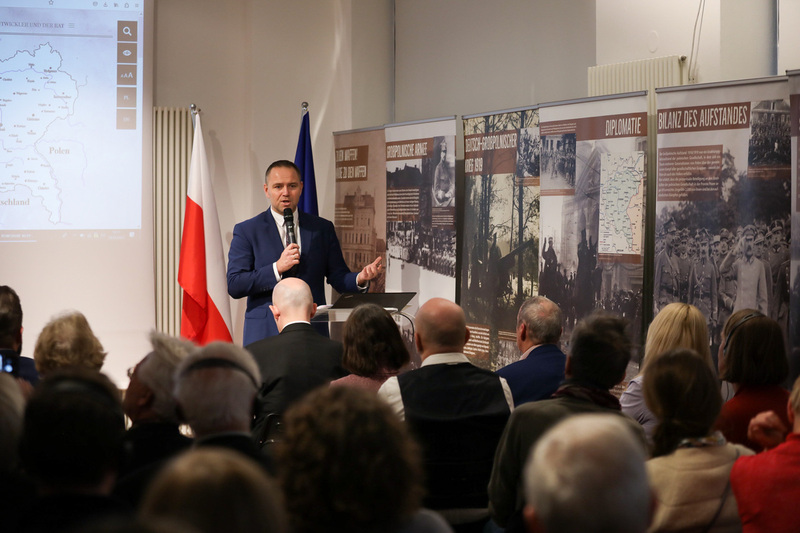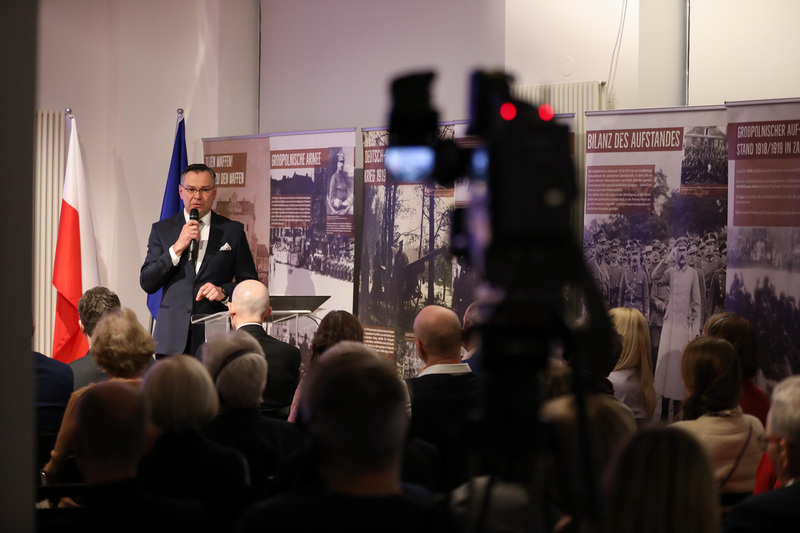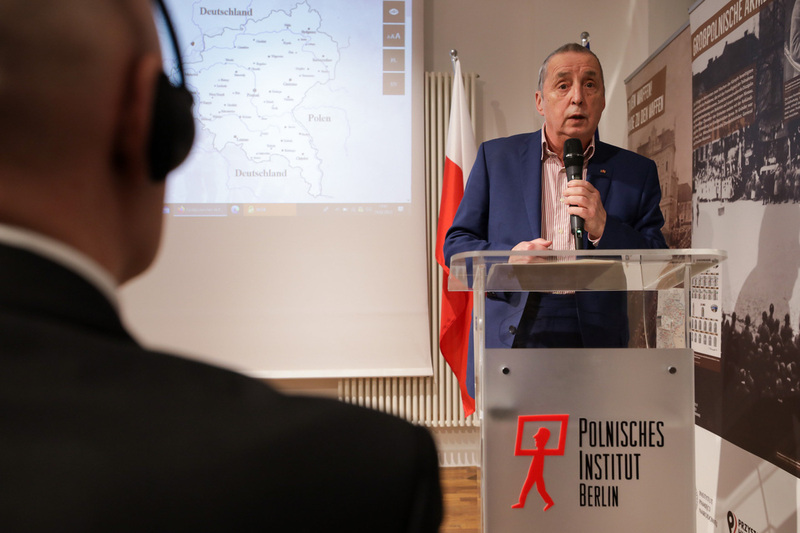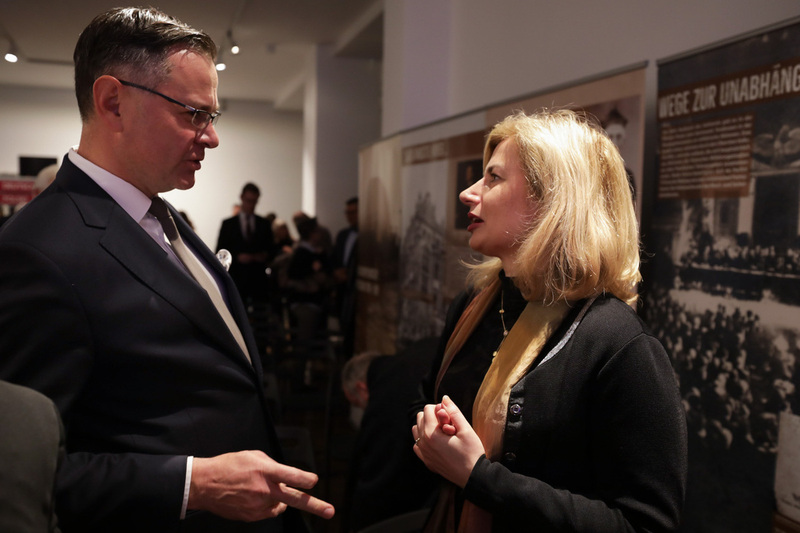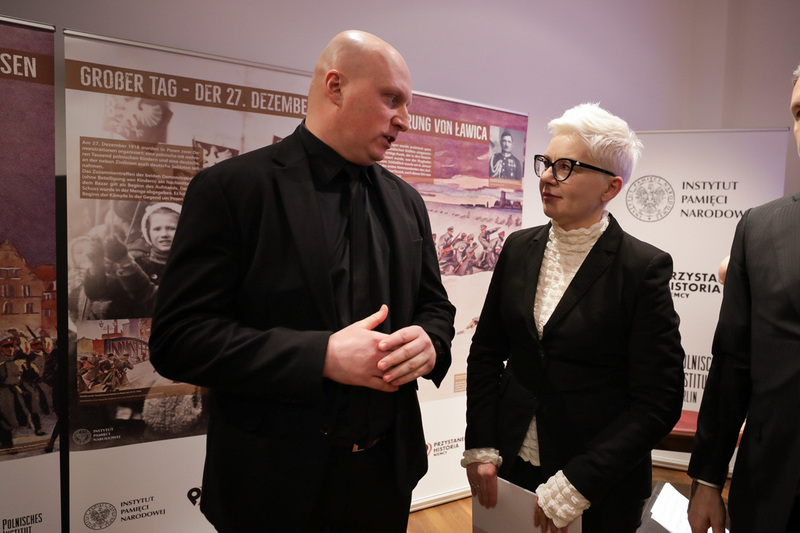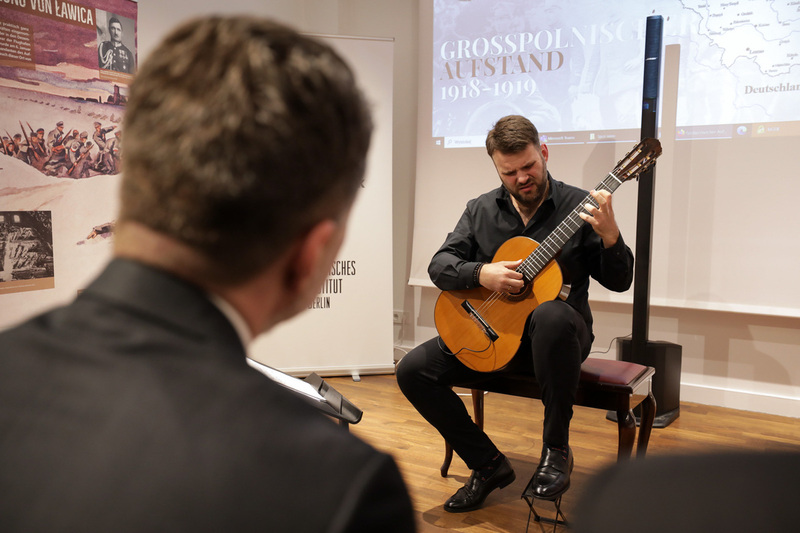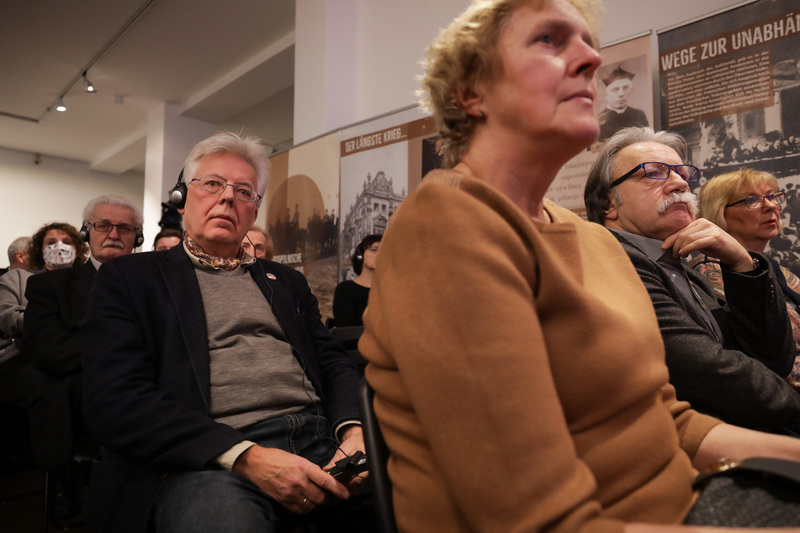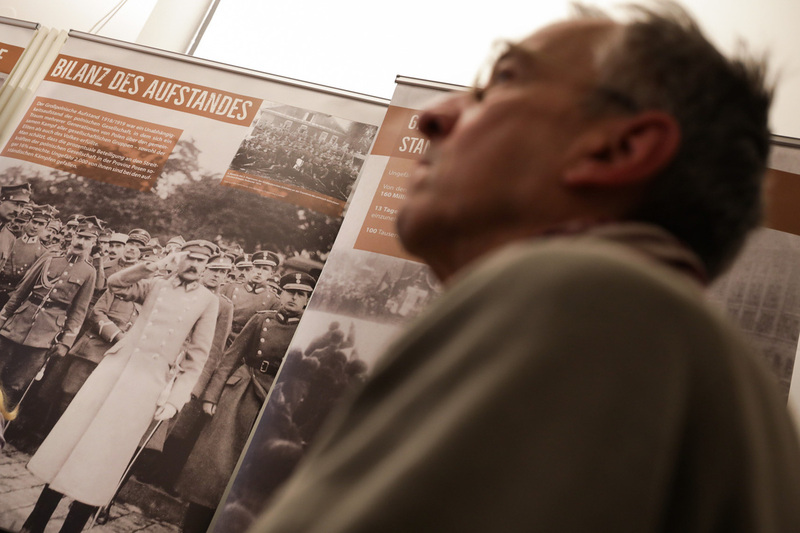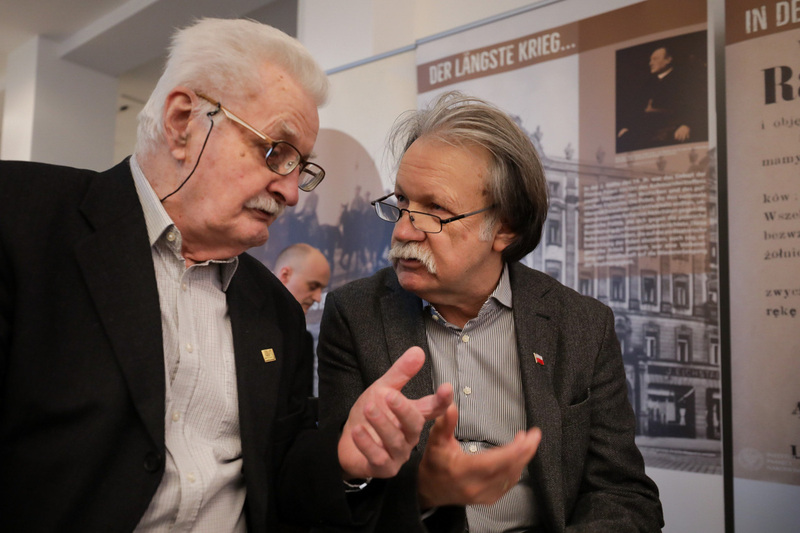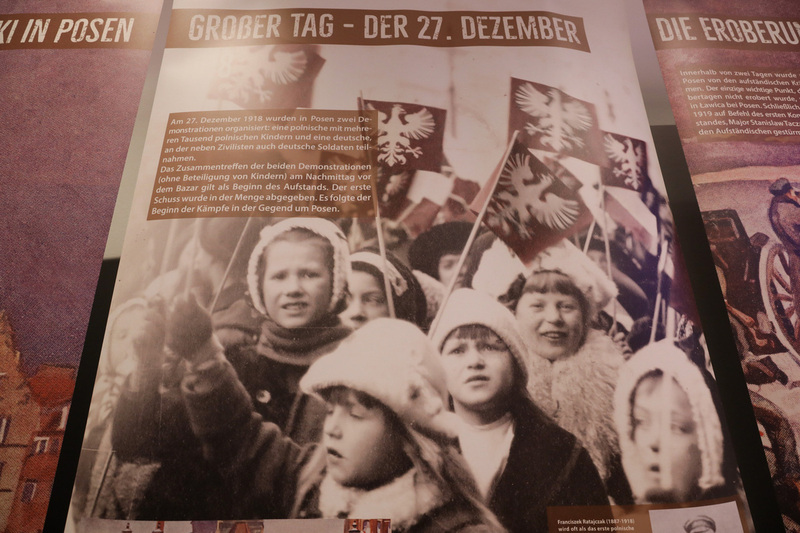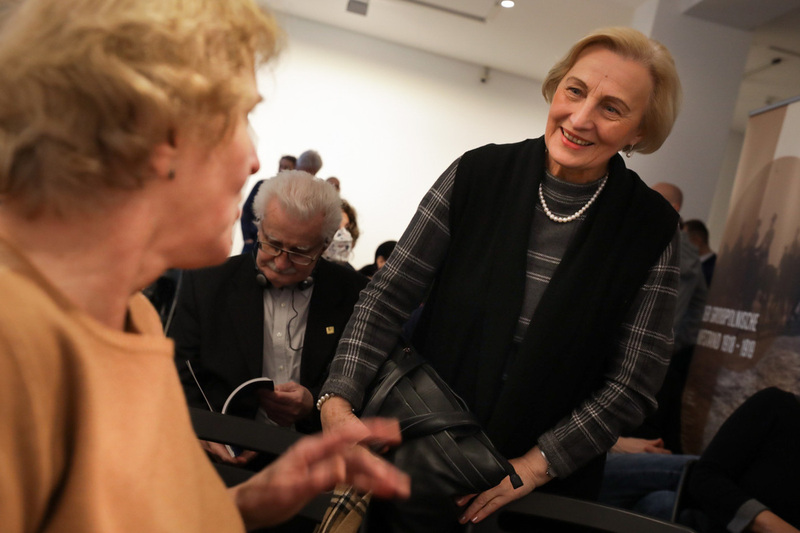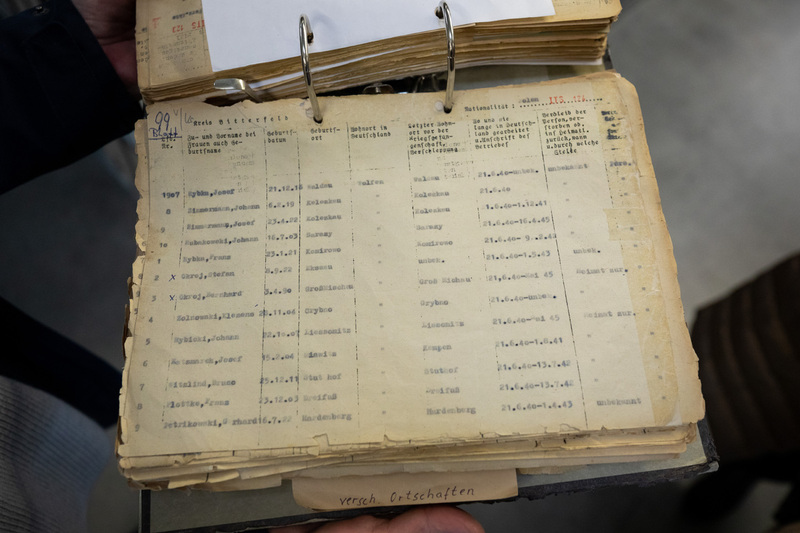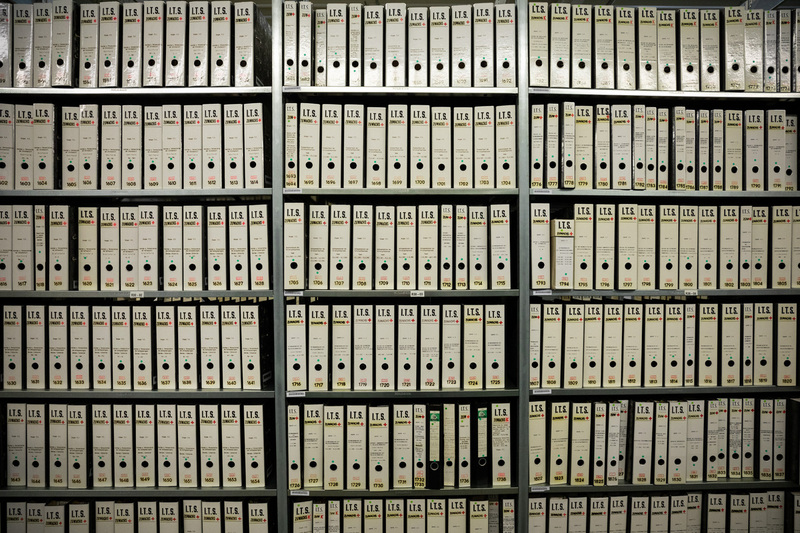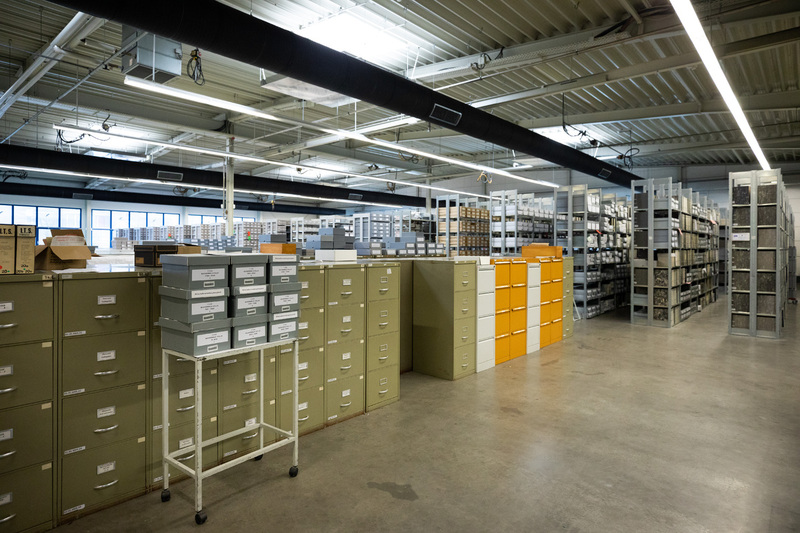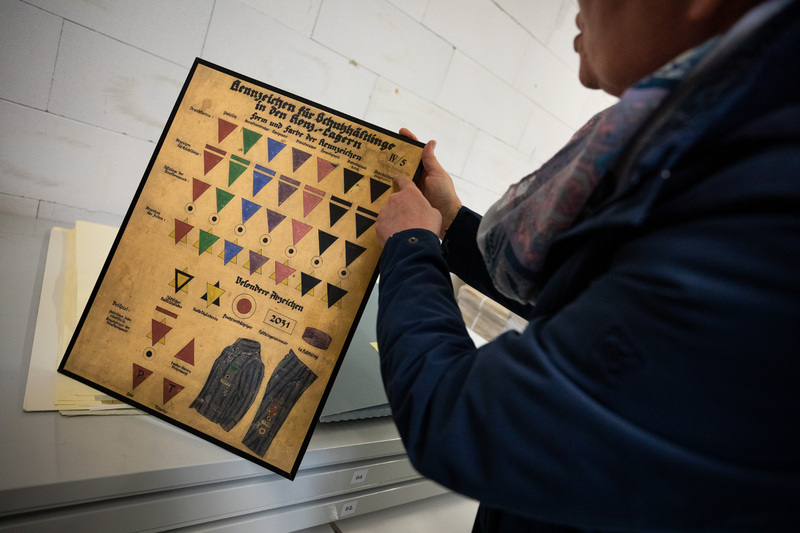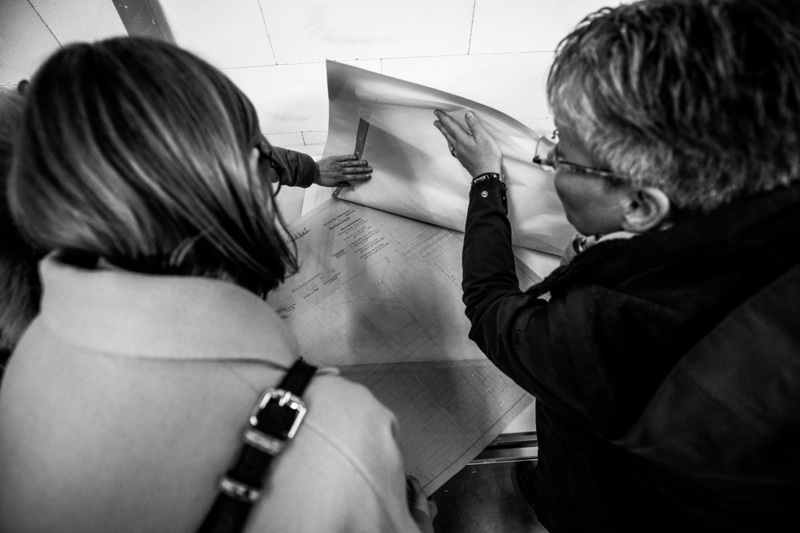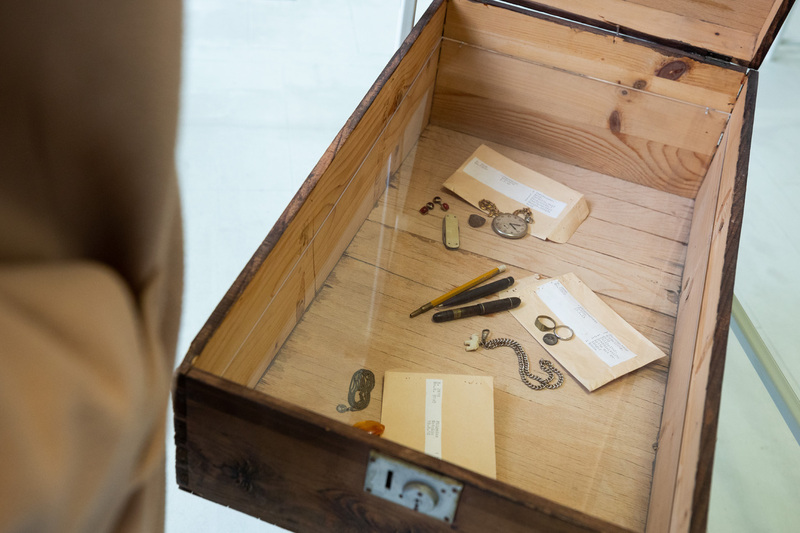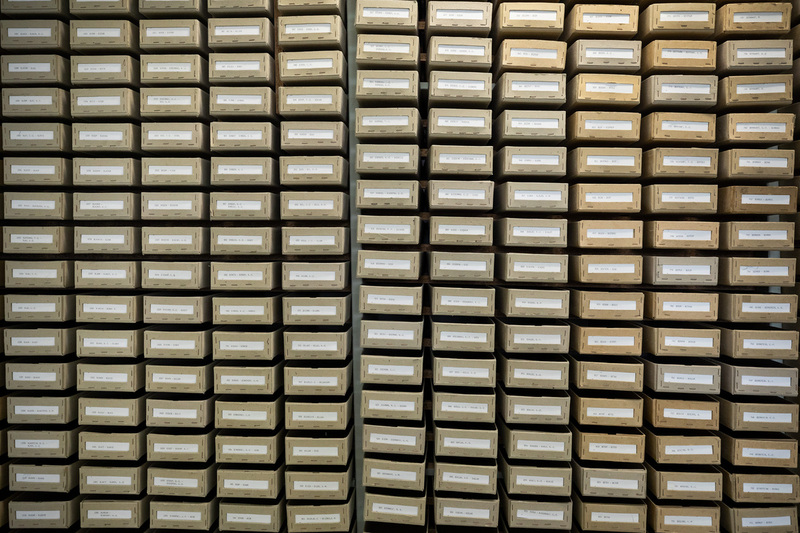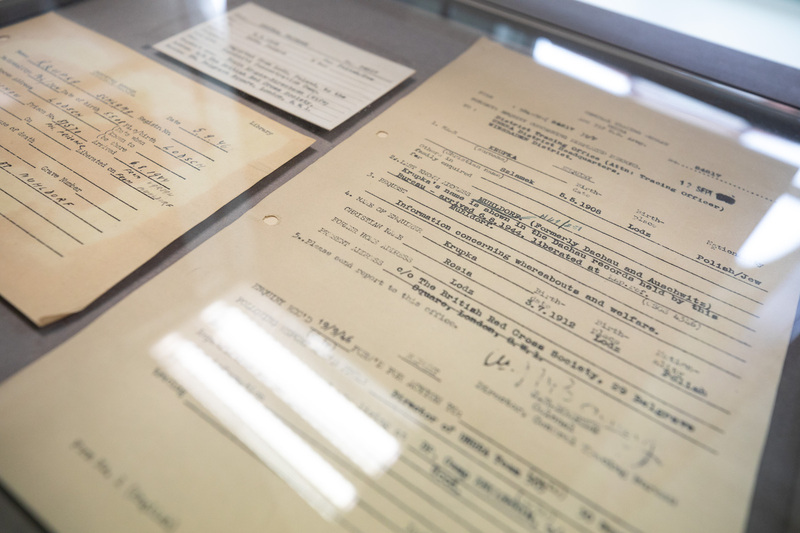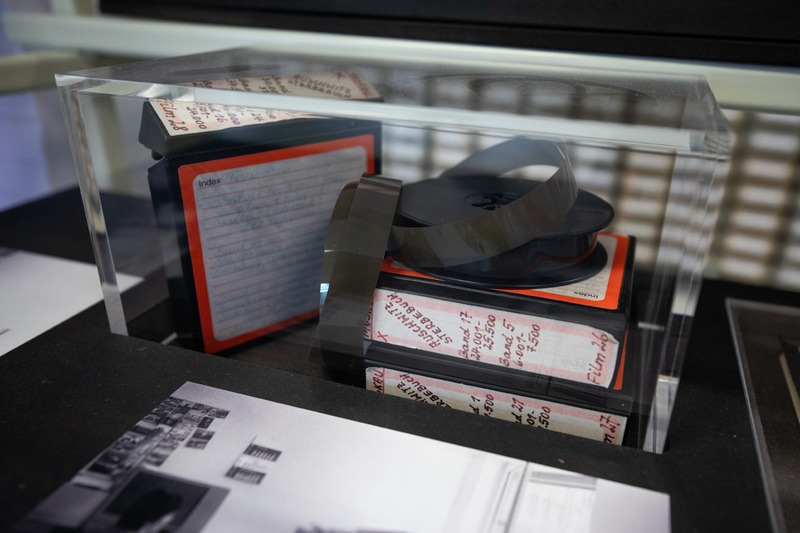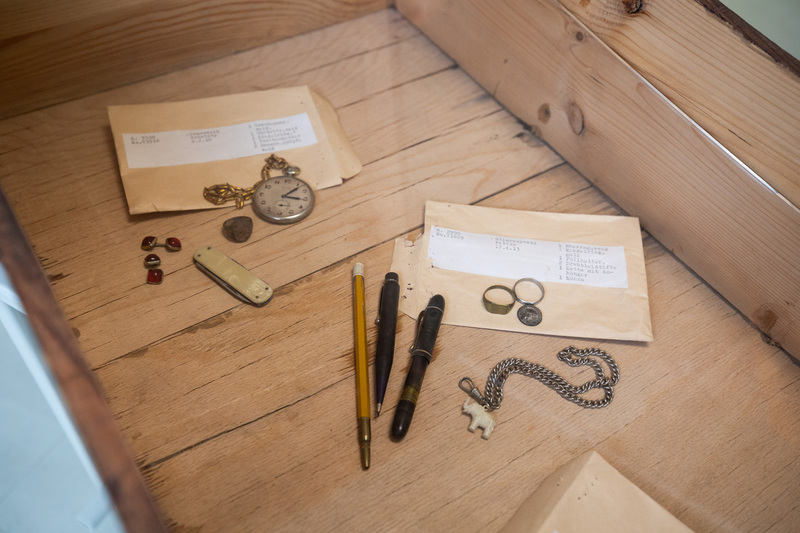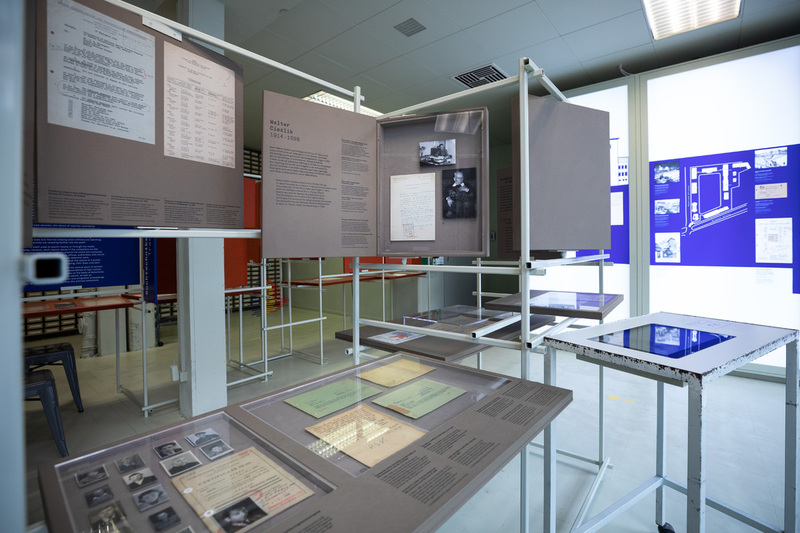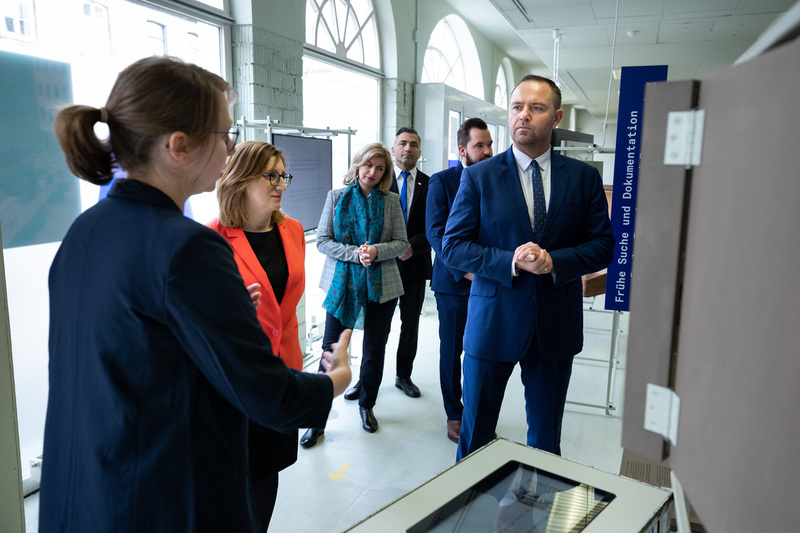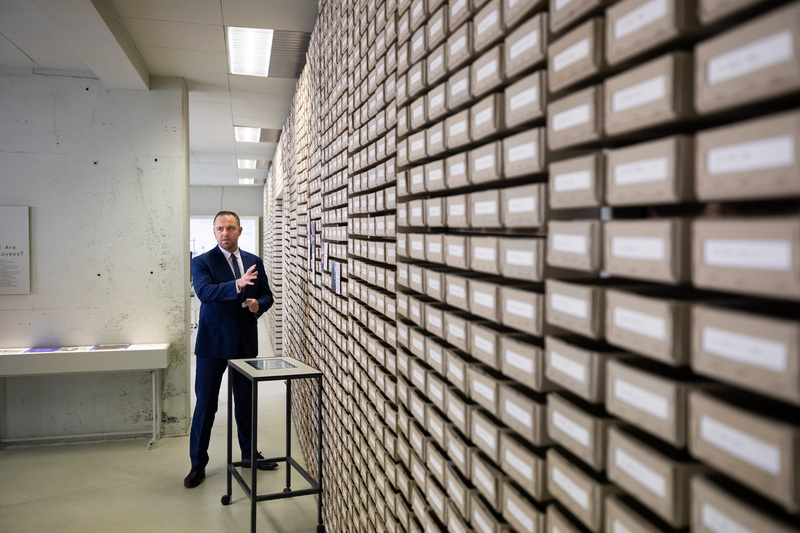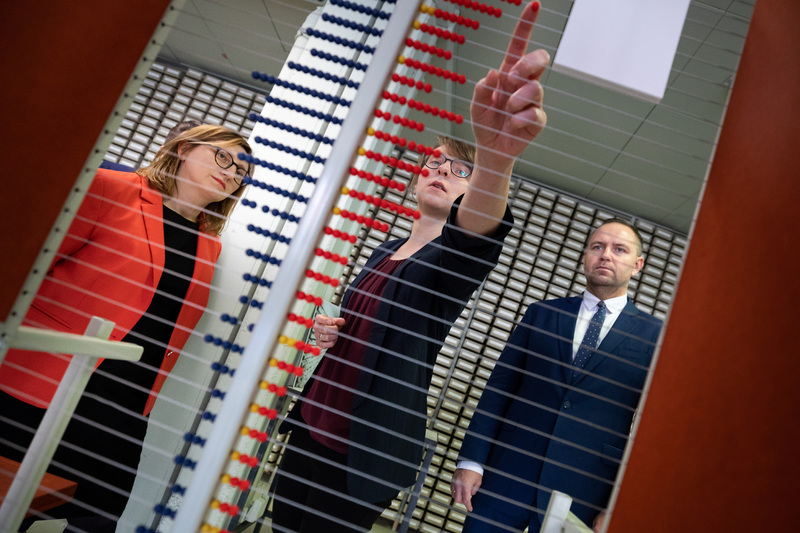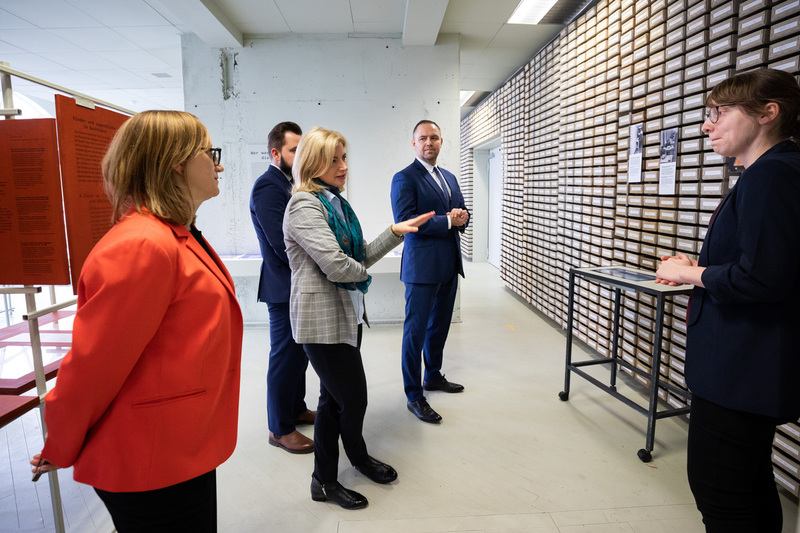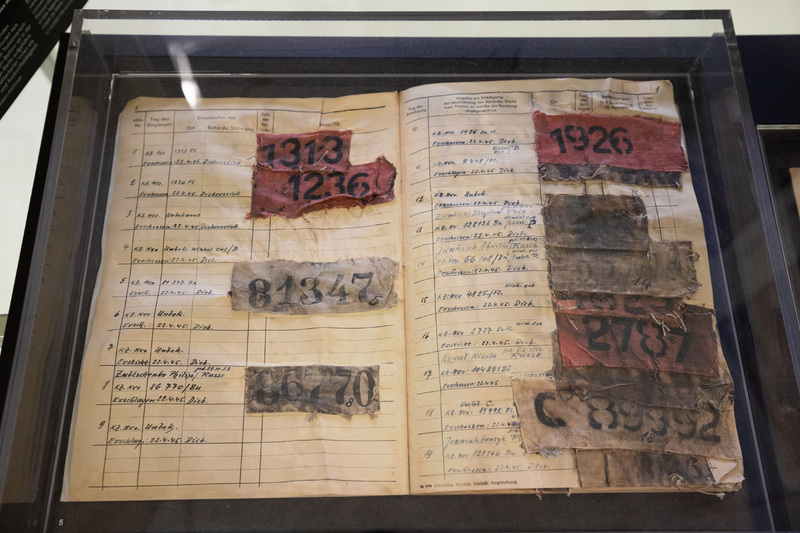The IPN History Points are places where one can encounter history, discuss films and books, see exhibitions, participate in workshops and meet witnesses to events that have shaped states and nations.
In Berlin and Leipzig we want to meet four times a year to educate the public on Poland's modern history, with special focus on Polish-German relations and their most difficult episodes. As far as historical memory goes, Germany is essential to us, and the IPN educational offer is dedicated to familiarizing the Germans with key aspects of the 20th century history of Poland and the whole of Central and Eastern Europe,
said Karol Nawrocki, Ph.D.
The date of the inauguration of the History Point in Berlin is hardly accidental. On 16 February 2023, we are celebrating the anniversary of the Armistice of Trier, which ended the Greater Poland Uprising. Therefore the Greater Poland uprising of 1918–1919, became the main theme of the event.
In 1918, the dreams of our ancestors ceased to be aspirations and became reality. The struggle for a free Republic of Poland was shared by many people and circles. It was a great joint effort of Poles, and it was an effort beyond divisions.
However, the people of Greater Poland in November 1918 could not rejoice in their regained Independence. The lands where they lived were still under Prussian rule. Today we remember the attitude of many generations of Poles who, during the 123 years of partition, often putting their lives at risk cherished the mother tongue, remained faithful to the traditions and faith of their fathers and regained the coveted independence.
The Greater Poland Uprising broke out on 27 December 1918 in Poznań, where Ignacy Jan Paderewski arrived on the evening of 26 December and was greeted with a standing ovation by the city's Polish residents.
The uprising ended on 16 February 1919, with the Armistice of Trier, which extended the principles of the Armistice of 11 November 1918 signed near Compiègne.
Since 2021, the day of the outbreak of the uprising — 27 December — has been celebrated in Poland as the National Day of the Victorious Greater Poland Uprising.
During their stay in Germany, the IPN delegation also visited the Arolsen Archives International Center on Nazi Persecution in order to sum up current cooperation on such projects as #StolenMemory and to discuss joint future initiatives.
The Arolsen Archives are the international center on Nazi persecution with the world’s most comprehensive archive on the victims and survivors of National Socialism. The collection has information on about 17.5 million people and belongs to UNESCO’s Memory of the World. It contains documents on the various victim groups targeted by the German regime and is an important source of knowledge for society today.
The collections of the Arolsen Archives focus on three main themes: information on incarceration can be found in the documentary holdings on concentration and extermination camps, ghettos and Gestapo prisons. A range of documents including meticulously kept employment records and registration cards provide detailed information on the fates of the forced laborers. There is also an extensive collection of documents on the liberated survivors, whom the Allies referred to as Displaced Persons.
The IPN website on the Greater Poland Uprising in German: https://grosspolnischeraufstand.eu/pwd.
For the English version, go to https://greaterpolanduprising.eu/
Read more: COLLECTED CONTENT: Greater Poland Uprising 1918-1919
